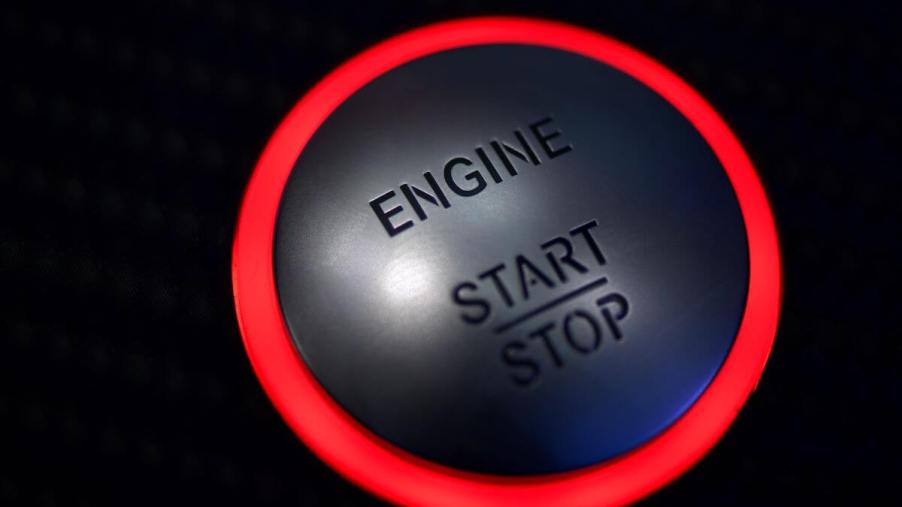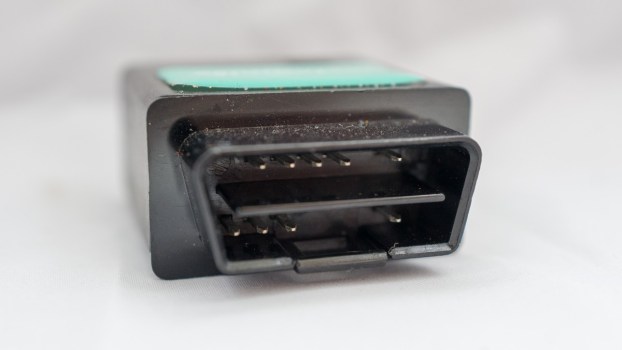
Is Your Car’s Start-Stop System Hurting You in the Long Run?
There are several tips and tricks available to help you improve your car’s fuel economy. One way is increasingly being built right into your vehicle. Many new cars have an auto start-stop system to reduce how much gas is wasted during idling. However, does this feature truly save you fuel? And even if it does, are there any long-term issues that can develop because of its use?
How does an auto start-stop system work?
First introduced in the 1970s, start-stop systems, or ‘auto start-stop’ as they’re sometimes called, have become more prevalent in the last few years. That’s thanks to improvements in automotive electronics, especially in starter motors and hybrid powertrains.
Although each start-stop system is slightly different, they work roughly the same way. When your car detects you’ve come to a stop and have the brake pedal pressed, it sends a signal to the ECU, according to Haynes. The ECU then temporarily cuts your car’s fueling and ignition systems, shutting the engine down. Then, when you take your foot off the brake pedal and/or press the accelerator, the ECU tells the engine to restart. It’s even possible to give cars with manual transmissions start-stop systems, CJ Pony Parts notes.
While the latest start-stop systems are relatively smooth, some owners have found them too rough or annoying to use daily. However, automakers have taken several steps to rectify this. For one, cars with start-stop systems usually have a dedicated button to turn the feature off. Additionally, because hybrid model starter motors often double as generators, they can ‘smooth over’ any lingering coarseness.
Does a start-stop system damage your car’s engine?
As sophisticated as auto stop-start systems are, they’re not infallible. More to the point, using them means your car’s engine turns off and on multiple times per trip. That’s led to some consumer concern that the technology might accelerate engine wear and potentially cause long-term damage.
To be fair, shutting off your engine does leave various metal surfaces touching without the lubricating protection of oil. Plus, starter motors do eventually wear out, as do the batteries powering them. So, on a surface level, there is some logic behind the aversion to stop-start tech.
However, for the most part, these potential flaws have been addressed, according to RAC. Firstly, modern oils have significantly better lubricating and wear-protection properties than their predecessors. Furthermore, many stop-start systems don’t turn on until the engine has warmed up. This ensures the oil and other fluids have properly circulated and coated the various engine components.
Secondly, cars with start-stop systems, hybrid or not, have oversized and overbuilt starters specifically to address wear-and-tear concerns. They can also detect if the battery has too low of a charge to sufficiently restart the engine. If that happens, the engine stays running to recharge the battery.
Modern stop-start systems also know if your A/C is running. If it is, the engine stays running to keep it on. It’s the same story with your car’s heater.
How much fuel does an auto start-stop system save?
However, while start-stop systems aren’t necessarily damaging your engine, are they truly improving fuel economy? In a word, yes. Still, as with any fuel-saving technology, how much you save depends on how and where you drive.
As mentioned earlier, your engine won’t turn off if the HVAC system is running. That cuts down on the potential fuel savings. When Edmunds tested the start-stop system in a Mini Cooper, reviewers found running the A/C meant ‘only a 2.9% improvement in fuel economy. Yet, with it turned off, the start-stop improved fuel economy by 9.5%. Additionally, the Jaguar and BMW models tested alongside the Mini also cut their fuel use by roughly 10% using start-stop tech.
In short, stop-start systems can help you save fuel, and they won’t damage your engine. So, unless you can’t stand the restarts, it’s worth keeping it on.



